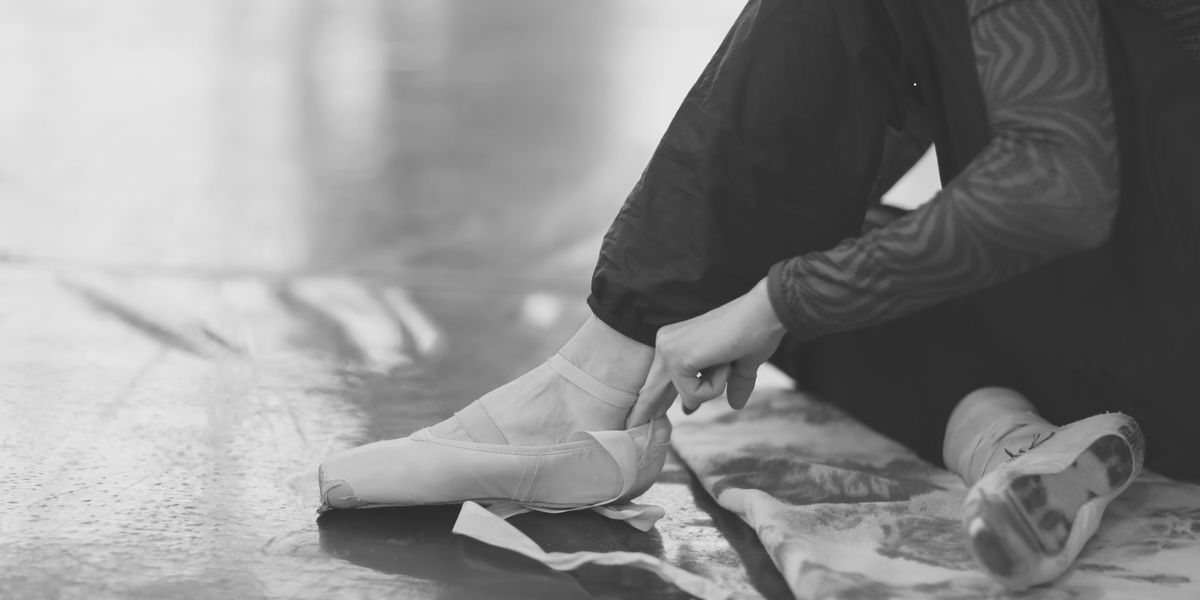I'm a Professional Dancer With Generalized Anxiety Disorder. Here's Why Dance Companies Need to Start Prioritizing Mental Health
My name is Abi Stafford, and I have generalized anxiety disorder.
I’ve had this “hook” in my mind for how I’d open an important essay my entire dance career, but I was never ready to talk about it, until now.
I might be the only dancer to say this, but the best change to result from the coronavirus shutdown is company class moving to Zoom.
As a kid, my teachers encouraged competition between students. While it undoubtedly helped push me, all these years later I still struggle with unhealthy levels of competitive feelings in class. But on Zoom, I don’t have to compare myself to anyone, and it feels great. I can dance freely because no one is watching and critiquing my abilities.
When the shutdown started, I was preparing to return to New York City Ballet after a hiatus. I had taken a leave of absence since December 2019, the middle of Nutcracker season, to focus on my mental health.
As NYCB underwent leadership transitions during the last few years and the culture among the dancers shifted, I had developed new feelings of anxiety. Some dancers felt more emboldened to ask for roles they wanted, envisioning exciting career possibilities. Others quietly wished casting choices would remain the same and sensed a more uncertain path. With my brother as artistic director, workplace dynamics collided with my personal life. Casting disappointments jabbed me painfully, and it became hard to find a corner in the theater where my soul felt safe.
It was difficult to officially inform the company that I needed to take a leave because I’d been burned when I’d shown my anxiety before. Back when Peter Martins was in charge, I had an anxiety attack backstage prior to Theme and Variations. I felt too insecure, too scared, too tired, and I couldn’t fathom performing. He offered me encouragement at the time, but, several years later, he brought up the episode unexpectedly, pointing to that painful moment to explain why I wasn’t reliable. The experience solidified that I should never show emotional vulnerabilities or weaknesses.
Fast-forward to December 2019. When I finally let myself stop dancing, literally mid-rehearsal, some colleagues tried to talk me out of it. While well-intentioned, their words made me feel worse because I started to question my choice. But it was the right decision for me. I have been focusing on my mental wellness, family and pursuing my law degree to heal my spirit as quarantine carries on.
I have lived and performed with (sometimes crippling) anxiety for my entire career, and I’m nowhere near the only one who’s struggled. I know of a dancer who picked up her bag and quit in the middle of a rehearsal. One time a young dancer timidly asked a group of older dancers whether ballet company life was hard for them. Upon emphatic replies of “yes,” he said, “I thought it was just me. Everyone walks around like they are just fine.”
Dancers feel immense pressure from management to constantly be perfect onstage. Yet, we are at the mercy of our bodies. Those two factors are an excellent recipe for anxiety. Some dancers cry a lot. Others call out sick when they’re too anxious to perform. Some even choose to retire altogether—far too young.
There needs to be more mental health support within dance companies. Psychological services should be made available to all dancers and artistic staff—including ballet masters. At my company, they’re under an intense amount of pressure to prepare the vast repertory, and all are former NYCB dancers who shared similar experiences, stresses and pain during their own careers.
Overall, everyone needs to listen more. Artistic management could send out anonymous surveys to assess what areas need improvement. Companies could hold talk-back sessions with dancers to open up the lines of communication about what’s working and what’s not. We need to make it acceptable for dancers to take care of their mental health. We need to stop training dancers (explicitly and implicitly) to hide their anxiety for fear of losing performance opportunities.
It is time to begin the conversation, because I worry about the ongoing suffering of dancers if this is not addressed. I worry that company leadership will continue to view my very real struggles with my mental health as a weakness. Most of all, I worry that the next generation of artists will continue to suffer as too many of their predecessors have.




